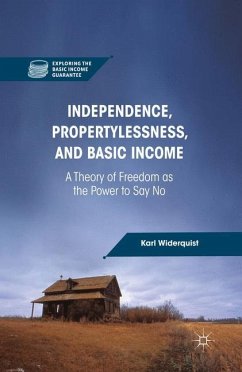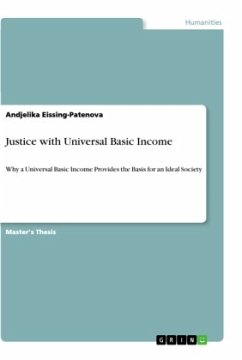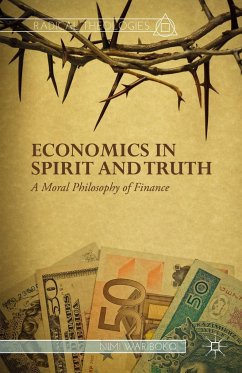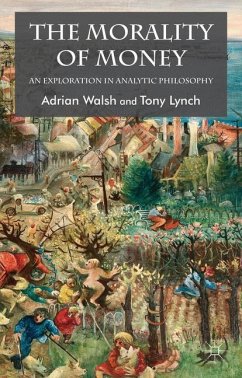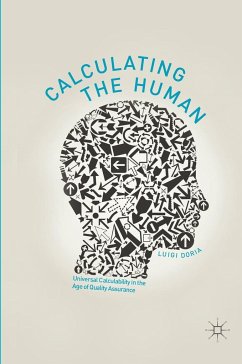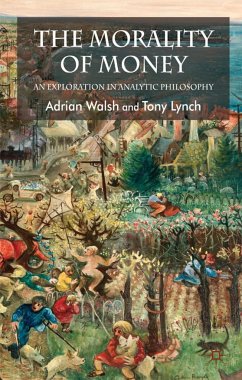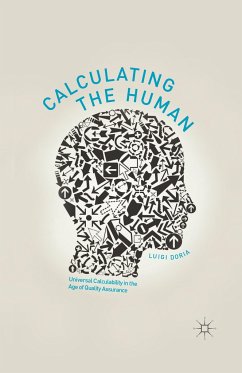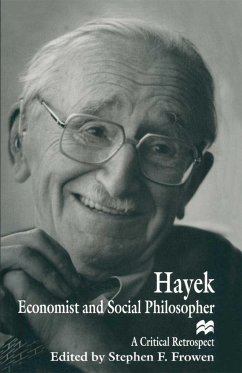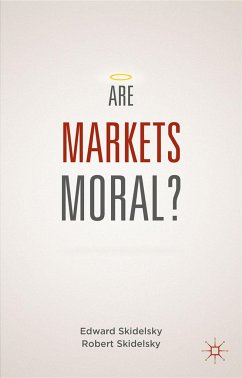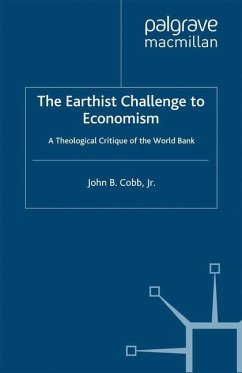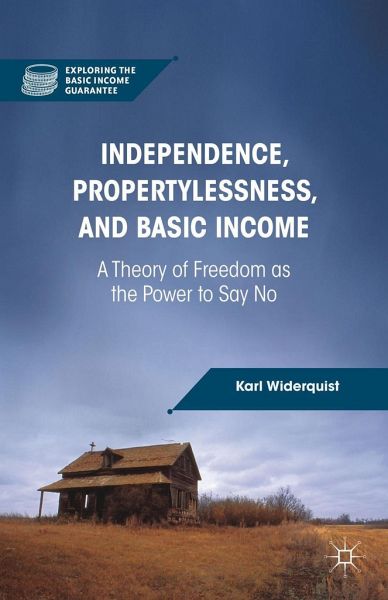
Karl Widerquist
Gebundenes Buch
Independence, Propertylessness, and Basic Income
A Theory of Freedom as the Power to Say No
Versandkostenfrei!
Versandfertig in 6-10 Tagen

PAYBACK Punkte
38 °P sammeln!





Independence, Propertylessness, and Basic Income argues that philosophers have focused too much on scalar freedom and proposes a theory of status freedom as effective control self-ownership: the power to have or refuse active cooperation with other willing people, or simply: freedom as the power to say no.
Karl Widerquist is Associate Professor at the Georgetown University School of Foreign Service in Qatar. He holds two doctorates one in Political Theory from Oxford University (2006) and one in Economics from the City University of New York (1996). He is coauthor of Economics for Social Workers , coeditor of The Ethics and Economics of the Basic Income Guarantee , coeditor of Alaska's Permanent Fund Dividend: Assessing its Suitability as a Model (Palgrave Macmillan), and coeditor of Exporting the Alaska Model: Adapting the Permanent Fund Dividend for Reform around the World (Palgrave Macmillan). He is a founding editor of the journal Basic Income Studies and has published scholarly articles on economics, politics, and philosophy in journals such as Political Studies, Utilitas, Eastern Economic Journal, Politics and Society , and Politics, Philosophy, and Economics .
Produktdetails
- Exploring the Basic Income Guarantee
- Verlag: Palgrave Macmillan / Palgrave Macmillan US / Springer Palgrave Macmillan
- Artikelnr. des Verlages: 978-1-137-27472-4
- 2013 edition
- Seitenzahl: 241
- Erscheinungstermin: 7. März 2013
- Englisch
- Abmessung: 218mm x 140mm x 20mm
- Gewicht: 445g
- ISBN-13: 9781137274724
- ISBN-10: 1137274727
- Artikelnr.: 36600729
Herstellerkennzeichnung
Libri GmbH
Europaallee 1
36244 Bad Hersfeld
gpsr@libri.de
"This book is many things: an exercise in political economy; a textbook on philosophy and social ethics; and a sustained argument for a Citizen's Income: and it is an excellent example of all of them . . . This is an important contribution to the literature on universal benefits, and therefore to the debate that might one day lead to their extension to working age adults." - Citizen's Income
Für dieses Produkt wurde noch keine Bewertung abgegeben. Wir würden uns sehr freuen, wenn du die erste Bewertung schreibst!
Eine Bewertung schreiben
Eine Bewertung schreiben
Andere Kunden interessierten sich für


